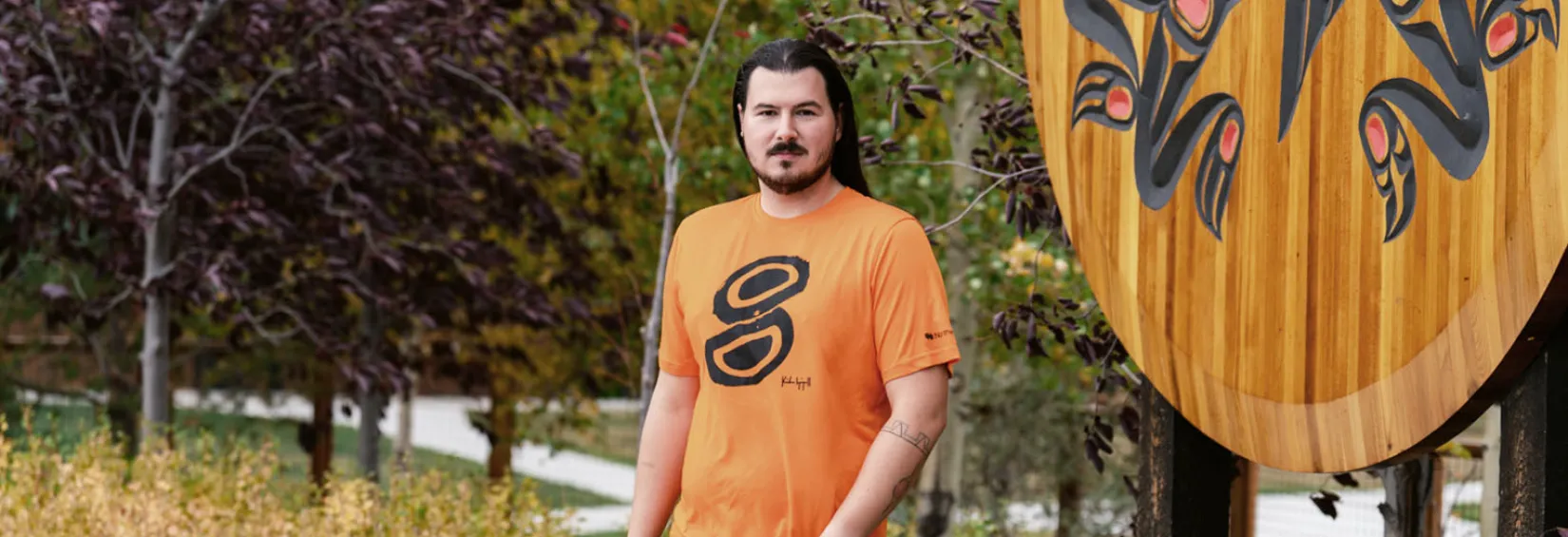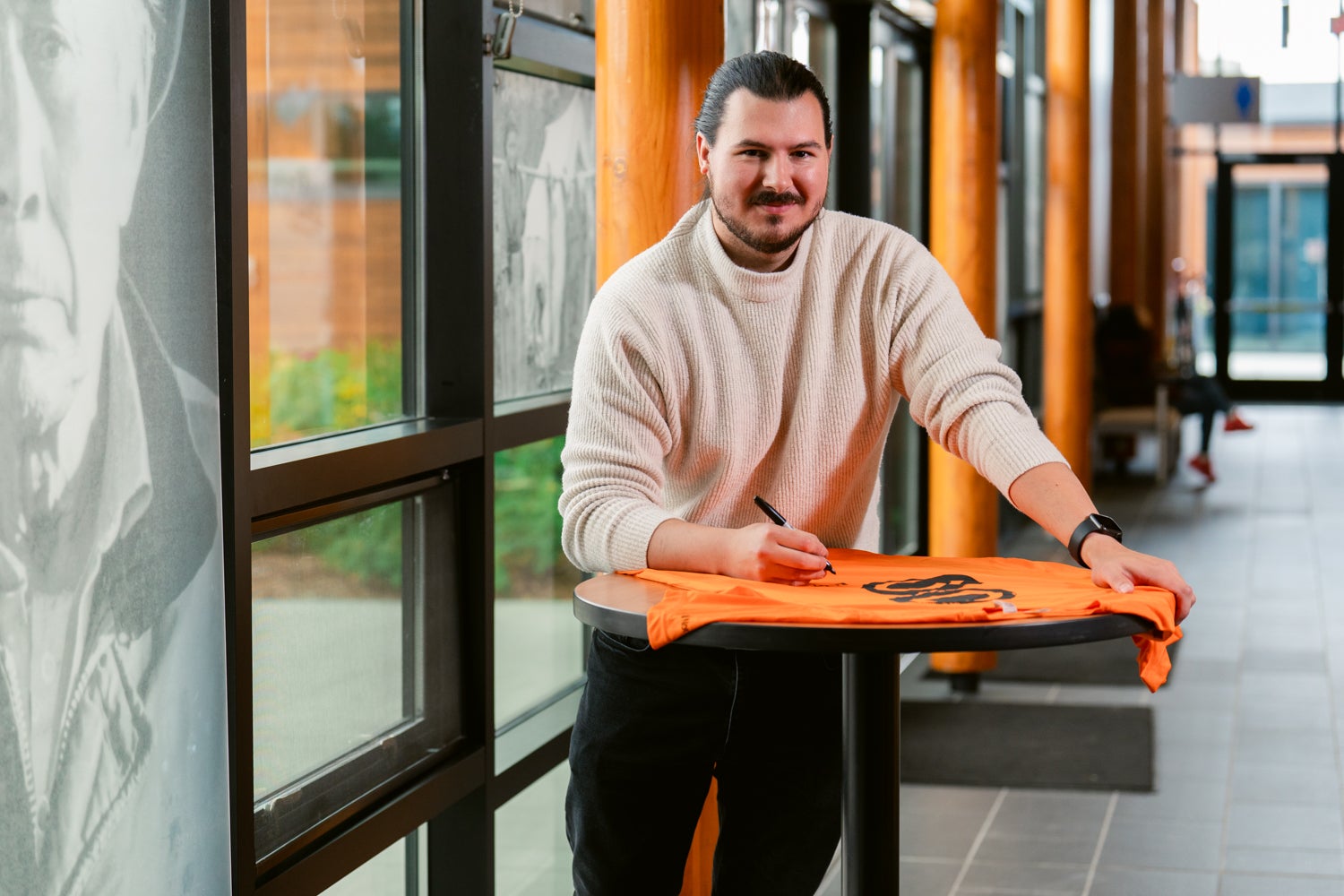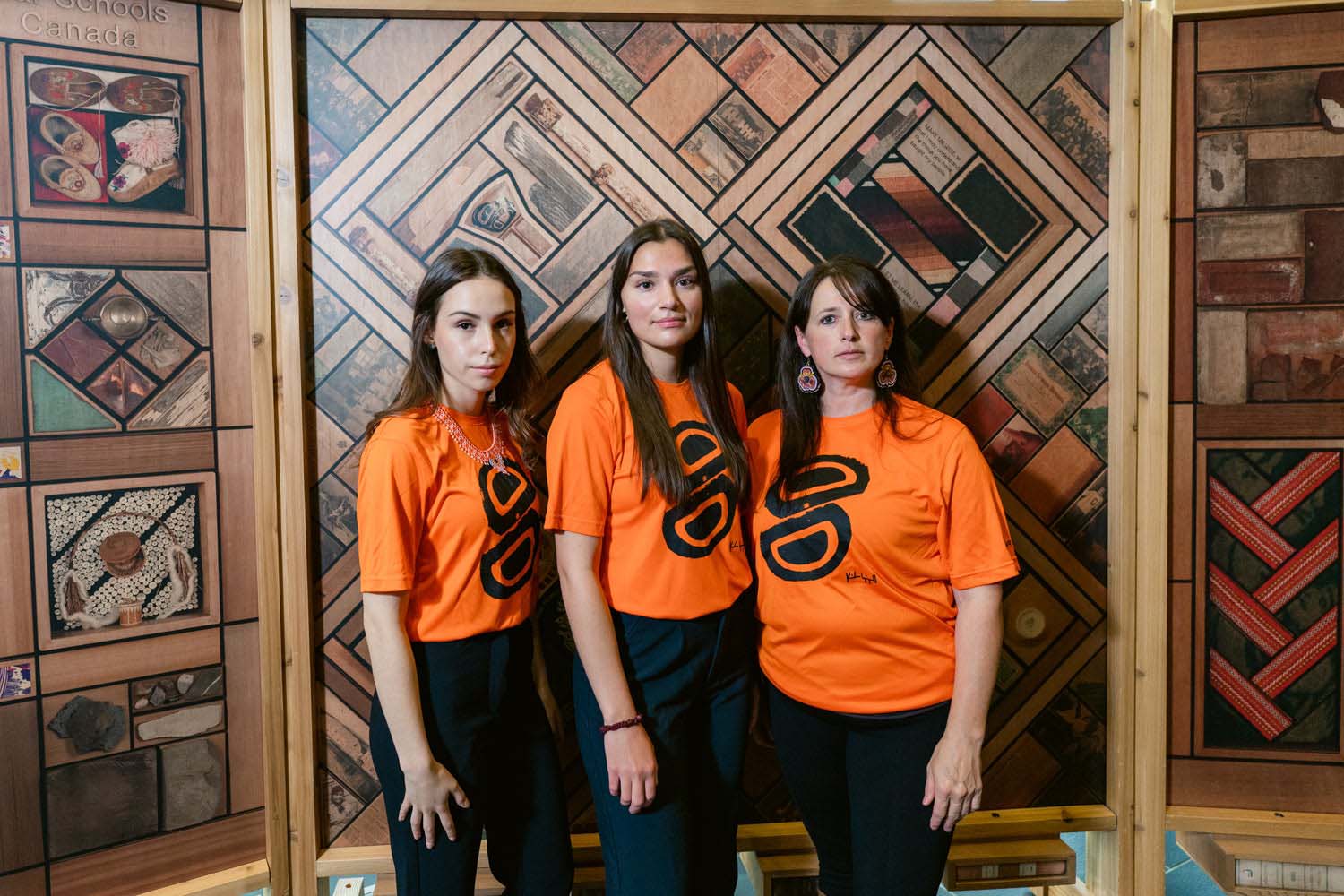
“Reflections” on reconciliation in the North
“My design shows two ovoids not in perfect balance, but slightly displaced. It is up to the viewer to decide if they are moving further away or closer together to be balanced”
It’s a simple shape, but one that carries deep historical and cultural meaning among many of the First Nations along the Northwest Coast.
When Northwestel approached Yukon First Nation artist Kailen Gingell to design it’s Orange Shirts this year, Kailen created two “Ovoids” to deliver a powerful message of the successes to date and the work still to be done on the North’s path to reconciliation.
“The two ovoids lie in nearly perfect balance with each other and show the viewer what could be visual harmony. This can be extrapolated to represent my views on reconciliation. Reconciliation is a restructuring of colonial ideology with Indigenous practices.”

Kailen’s piece - Kinghą̈r -which means reflections in the southern Tutchone language, was inspired by Lawrence Paul Yuxweluptun’s “Manifesto of Ovoidism”. The manifesto resonated with Kailen and he found the ovoid to be a shape that could represent the potential for balance as we work towards further reconciliation.
“The manifesto focuses on the contrasting simplicity and complexity of the ovoid. A shape that appears simple in form, but has a deep visual history and wide array of symbolism all along the Northwest Coast. Yuxweluptun states ‘fundamentally, it is about colonial deconstruction and Aboriginal reconstruction.’”
For Kailen, reconciliation is a very personal journey. A Kwanlin Dün First Nation citizen with Southern Tutchone, Tlingit, and European heritage – Kailen began exploring his indigenous roots through art while studying at the University of Victoria. “I was distanced from that side of my culture growing up – it was within arms reach but it wasn’t until university when I started exploring myself and then coming back to the Yukon and working with First Nations that I began to focus on that side of me.”
Northwestel’s commitment to reconciliation

This week in the North and across Canada we honour the lost children and the survivors of residential schools, their families, and communities. Northwestel is marking the day through art but also through action, recommit to walking the path of reconciliation together with our Indigenous partners, communities and customers. Learn more at Nwtel.ca/reconciliation.
